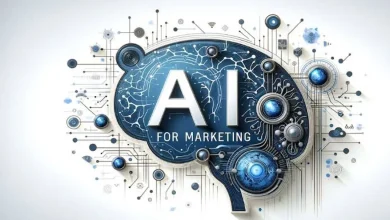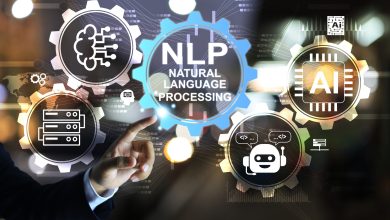
Imagine a young intern at a five-star resort. Instead of waiting for managers to correct mistakes, she wears a headset and delivers instant guidance powered by AI, turning learning that once took months into days. The AI points out guest preferences, predicts service bottlenecks, and even recommends words to enhance guest interactions. What once took months to learn through trial and error now happens in days. This is not science fiction; it is the new face of hospitality internships.
Internships have always been a gateway into the hospitality industry. They provide students with real-world exposure, cultural understanding, and the confidence to manage diverse guest expectations. But as the industry undergoes rapid digital transformation, internships are evolving too. Artificial intelligence (AI) and data analytics are no longer optional tools. They are becoming central to how interns learn, adapt, and grow.
Why the future of internships is changing
For decades, hospitality internships followed a predictable pattern: students rotated between departments, shadowed professionals, and learned through hands-on practice. While this experience remains valuable, it also has limitations. Feedback often arrives late, mistakes are costly, and learning depends heavily on individual supervisors.
Today, the industry needs faster, smarter training. Guest expectations are higher than ever, shaped by personalization, instant service, and seamless technology. Hotels and hospitality schools realize that traditional methods alone are not enough. AI and analytics now fill this gap, making internships more precise, dynamic, and impactful.
The role of AI in shaping modern hospitality internships
Artificial intelligence enhances internships in several ways:
- Smart guidance: AI assistants suggest solutions in the moment, helping interns adapt quickly.
- Virtual simulations: Instead of learning only on-site, students practice scenarios in AI-powered environments before engaging with real guests.
- Personalized learning: AI tracks progress and tailors training to each intern’s strengths and weaknesses.
Major hospitality brands already use AI to monitor guest reviews, optimize service, and even predict staffing needs. Interns exposed to these tools graduate with future-ready skills, making them more valuable to employers.
Analytics: turning data into career growth
Analytics goes hand-in-hand with AI, transforming raw information into meaningful insights. Data collected from guest interactions, reservations, and service flows helps interns see how everyday actions shape the guest experience.
Some key ways analytics supports interns include:
- Understanding guest trends: Data can reveal preferences such as eco-friendly services or multilingual support.
- Improving cultural awareness: By studying these patterns, interns gain a deeper appreciation for diverse guest expectations.
- Measuring personal performance: Analytics tracks how quickly issues are resolved and how guests respond to service.
- Turning feedback into growth: Clear performance metrics give interns a roadmap for improvement, building confidence step by step.
By learning to interpret these insights, interns develop both operational awareness and strategic thinking, skills that prepare them to thrive in modern hospitality.
Real-world examples of transformation
The shift is already visible across the hospitality world.
Luxury hotels using AI training simulations
Leading international hotel groups are rapidly investing in AI-powered tools: around 76% of hotel executives believe AI is fundamentally changing the industry, and 50% of hotels had already planned AI integration by 2024. These AI-driven training simulations allow interns to rehearse guest check-in, conflict resolution, and adapt to cultural nuances before facing real-world scenarios, reducing pressure and building confidence.
Internship pathways in global brands
Many students begin their careers with placements at international hotel groups such as Hyatt, Rosewood, and Shangri-La. These leaders already use AI to personalize guest experiences, predict service demands, and optimize operations. Alumni who trained on these systems during their hospitality management internships have since moved into senior roles in destinations from Monaco to Dubai, showing how early exposure to technology and analytics can translate into long-term leadership.
These examples prove that AI and analytics are not distant possibilities; they are already reshaping how interns prepare for hospitality careers.
The value of a hospitality management internship in the AI era
A hospitality management internship today is more than a placement; it is a bridge between service tradition and digital innovation. Interns no longer just observe; they actively learn through tools powered by AI and analytics.
Key benefits include:
- Instant learning: AI highlights how service choices affect guest experiences, turning feedback into action.
- Data-driven learning: Dashboards highlight food preferences, room service usage, and service patterns.
- Faster growth: Students transition from passive learners to contributors who spot trends and suggest improvements.
Career resilience: Early exposure to AI builds adaptability for a changing industry.
For employers, these internships provide talent that already understands both service culture and data strategy, ensuring graduates are confident and future-ready.
Benefits for students, educators, and employers
The future of internships brings benefits to every stakeholder in hospitality.
- Students gain practical skills faster, supported by data-backed insights and AI feedback.
- Educators can track student performance in detail, making mentorship more effective.
- Employers receive interns who understand not only guest service but also operational efficiency and business intelligence.
This shared value creates stronger partnerships between schools, students, and industry leaders.
Challenges and ethical considerations
Of course, the shift to AI-driven internships is not without concerns. One key challenge is maintaining the human touch. Hospitality is built on empathy, warmth, and personal connection, qualities no machine can replace. Over-reliance on AI risks making the service feel mechanical.
Another issue is data privacy. Interns must be trained to handle guest information responsibly, ensuring trust is never compromised. Equally, schools and hotels must balance technology with soft skills, reminding students that while AI is a guide, true hospitality still comes from the heart.
Conclusion: The future of hospitality internships
The future of internships blends empathy and service culture with the precision of AI and analytics. Students who embrace this shift will not only serve guests better but also shape the future of the industry itself.
As hospitality evolves, so does its training. Tomorrow’s interns will walk into hotels equipped with real-time insights, data-driven strategies, and the confidence to lead. For those preparing to enter the field, the message is clear: the future of hospitality internships is already here, and it is brighter, smarter, and more rewarding than ever.




